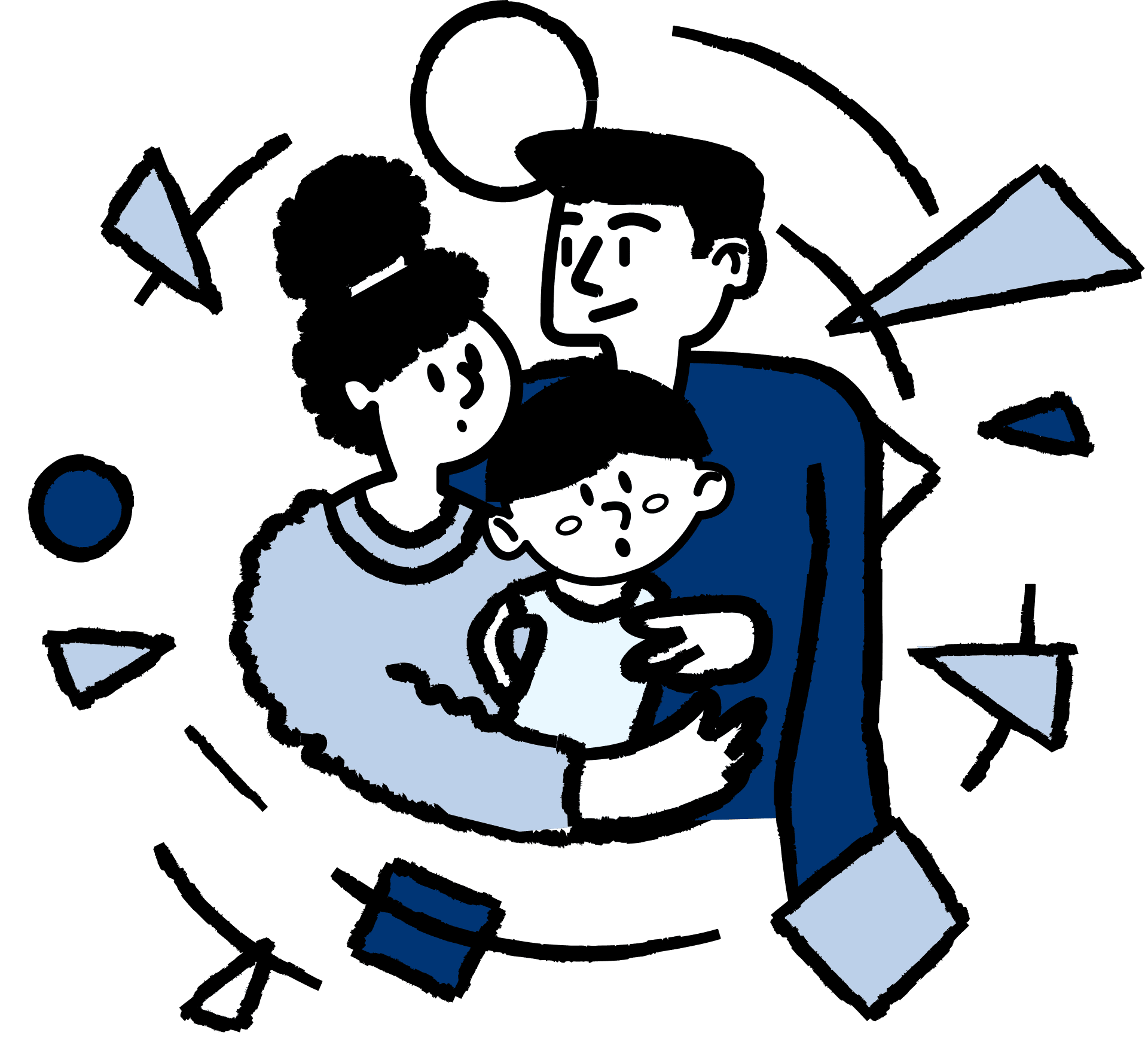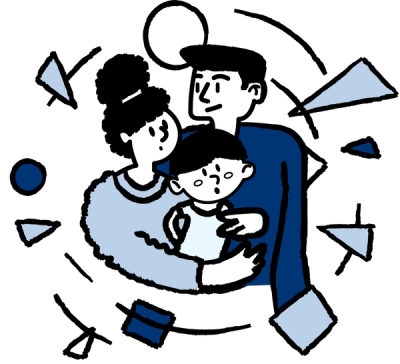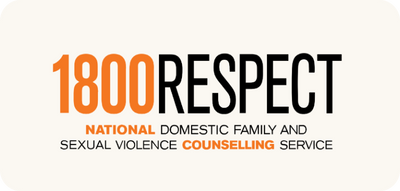Staying safe during and after an abusive relationship
Help is available 24 hours a day, 7 days a week.
If you or someone you care about is experiencing domestic and family violence, there are people who want to help.
Contact 1800RESPECT (1800 737 732) for DFV information and advice. If that doesn't feel like an option right now, you can always connect with a Lifeline crisis supporter via 13 11 14, text, and chat.
If life is in danger, dial 000.
Whether you’re still in an abusive environment, are trying to leave or have already left, safety should be your number one priority.
Domestic and family violence (DFV) can be unpredictable and can escalate at any moment. It’s important to know ways you can stay safe right now and in the long term.
On this page, you’ll find information on:
- How to create a safety plan
- Tips for leaving an abusive relationship
- Resources that can help you stay safe and regain independence.
Scroll down to learn more.
Safety planning while still in an abusive relationship
Safety planning means putting together a checklist of actions you can take and people you can reach out to when you feel unsafe or need to leave quickly.
One of the most important parts of safety planning is making an escape plan. While your escape plan may differ depending on your circumstances, it's important to think about things like what to do if you need to leave quickly.
Example of a safety plan
- Planning and practising the quickest way to leave your home
- Giving someone you trust keys or access to your home as well as any copies of important documentation
- Finding a trusted person you can reach 24/7 if you need to leave quickly. This is especially important for anyone with mobility issues or a disability. Some people have a code word they use to prevent the abuser from discovering what you’re doing.
- If you plan to leave and are worried about your pet, you can consider temporarily leaving them with a trusted neighbour or check if your local area has a program like RSPCA NSW's Community Domestic Violence Program
- Talking to your employer about taking family and domestic violence leave
- Having a pre-packed escape bag with keys, money, IDs, important documents, and medication (if required).

1800RESPECT recommends creating a safety plan with a support service such as theirs or FULL STOP (1800 385 578).
Tips for leaving an abusive relationship
Deciding to leave an abusive relationship is a brave step towards a better life.
As this can be one of the most dangerous periods of time, it’s important that you do what’s possible to keep yourself safe.
Here are some ways you can stay safe after leaving:
- Inform people you trust about your situation
If you need to leave quickly or call for help, it's important that people know your background and can offer the right support.
You could inform a:
- Family member
- Neighbour
- Pastor or priest
- Colleague or classmate.
If it feels safe, you may want to give them copies of important documents like birth certificates, passports, ID, money, and any evidence of abuse.
- Change your locks, keypad codes, and phone number
- Change passwords, disable location sharing, and check privacy settings
- Do a technology check-up
- Change your daily routine
If you haven’t already gotten a protection order, you can consider applying for one. This ensures the other person can be arrested and charged if they try to contact or approach you. If you ever feel like you're in immediate danger, call 000.
For advice on how to emotionally heal and build healthy relationships after leaving an abusive relationship, visit our long-term help for relationships page.
More resources that can help you stay safe and regain independence
When the other person is trying to exert power and maintain control over you, they can use coercive control and stalking behaviours such as monitoring your physical location, online movements, and bank accounts to take away your independence.
As society continues to get increasingly tech-savvy every day, we are seeing more instances where tech-based abuse plays a role in domestic and family violence.
Below, you’ll find resources from eSafety that can help you regain control of your devices and bank accounts.
- Check and protect your devices
No matter where you are in your journey, it’s always a good idea to regularly review your online safety.
You can visit the eSafety website to learn how to:
- Use safe devices when experiencing DFV
- Protect access to your device
- Manage your online account security
- Review your social media settings
- Keep your online history private
- Protect your location information
- Take control of your home security.
Alternatively, you can download a PDF of eSafety’s Online Safety Checklist.
- Learn how to collect digital evidence safely
- Understand how to get police and legal help
Emergency housing, financial support, and legal help options
One of the biggest hurdles you may face after leaving a domestic and family violence situation is finding a place to stay and accessing legal help. This does not mean you need to return to the abusive relationship. There is help available.
If you’re looking for emergency accommodation, you can call 1800RESPECT (1800 737 732) and ask to be put in touch with crisis accommodation services in your area.
- If you need financial assistance, you can:
- Learn about government payments you may be eligible for
- See if you are eligible for the Immediate Needs Support Package for primary victims of domestic and family violence
- Check to see if your bank has support for customers experiencing DFV like NAB, Commbank, ANZ, and Westpac do.
After leaving an abusive relationship, you may also need legal help with things like getting a protective order, filing for divorce, organising child custody and child support agreements, and other important matters.
In Australia, some organisations provide these services for free to those who have experienced domestic and family violence. The government website, Family Violence Law Help, can help you find free legal assistance in your state or territory.
For more ways you can learn how to stay safe during and after an abusive relationship, you can:
- Contact 1800RESPECT (1800 737 732)
- Speak with a counsellor from Full Stop (1800 385 578)
- Visit our DFV long-term help page.
If you’re a man using abuse or violence in relationships and are here because you want to explore options for changing your behaviour, you can contact Men’s Referral Service (1300 766 491) 24 hours a day, 7 days a week. It’s free, confidential, and a positive first step.






